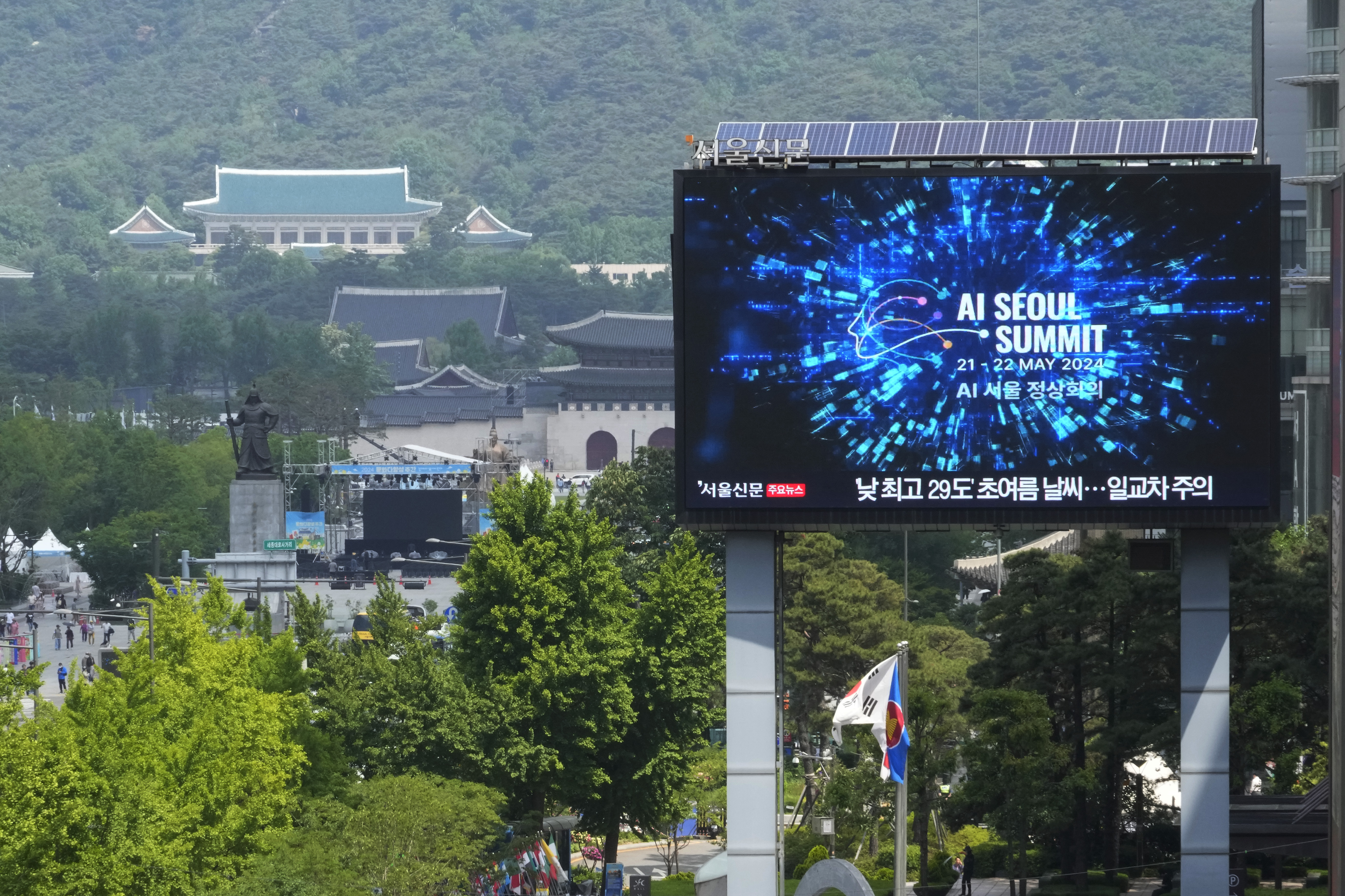
SEOUL / LONDON - Global leaders and officials taking part in an AI summit being hosted by South Korea and Britain are expected to strike new agreements focused on how to practically regulate the rapidly evolving technology, government and industry sources said.
The artificial intelligence (AI) summit in Seoul this week aims to build on a broad agreement at the first conference held in the United Kingdom six months ago and to better address a wider array of risks.
British Prime Minister Rishi Sunak and South Korean President Yoon Suk Yeol will oversee a virtual summit later on Tuesday, followed by a ministerial session on Wednesday.
This week's summit will address "building... on the commitment from the companies, also looking at how the (AI safety) institutes will work together," Britain's Technology Secretary Michelle Donelan said
This week's summit will address "building... on the commitment from the companies, also looking at how the (AI safety) institutes will work together," Britain's Technology Secretary Michelle Donelan told Reuters on Tuesday.
ALSO READ: Europe sets benchmark for rest of the world with landmark AI laws
Since November, discussion on AI regulation has shifted from longer-term doomsday scenarios to "practical concerns" such as how to use AI in areas like medicine or finance, said Aidan Gomez, co-founder of large language model firm Cohere.
Industry participants wanted AI regulation that will give clarity and security on where the companies should invest, while avoiding entrenching big tech, Gomez said.
With countries such as the UK and US establishing state-backed AI Safety Institutes for evaluating AI models and others expected to follow suit, AI firms are also concerned about the interoperability between jurisdictions, analysts said.
Representatives of the Group of Seven major democracies countries are expected to take part in the virtual summit, while Singapore and Australia were also invited, a South Korean presidential official said.
ALSO READ: EU demands clarity from Microsoft on AI risks in Bing
The South Korean government declined to confirm which industry leaders will take part in the summit, although Tesla’s Elon Musk responded to Yoon's posting on the upcoming summit on his social media platform X.
"Looking forward to this," he said in a post.
The types of business which are most likely to use AI are seeing growth in workers' productivity that is almost five times faster than elsewhere, raising hopes for a boost to the broader economy, accountancy firm PwC said
Productivity surge
Meanwhile, the types of business which are most likely to use AI are seeing growth in workers' productivity that is almost five times faster than elsewhere, raising hopes for a boost to the broader economy, accountancy firm PwC said.
Productivity in professional and financial services and in information technology grew by 4.3 percent between 2018 and 2022 compared with gains of 0.9 percent across construction, manufacturing and retail, food and transport, PwC said.
The data suggested that the rise of AI could help countries to break out of a rut of low productivity growth which would boost economic growth, wages and living standards, PwC said in a report published on Tuesday.
ALSO READ: Microsoft singles out Google's competitive edge in generative AI
Carol Stubbings, leader of PwC Global Markets and Tax & Legal Services, said highly productive sectors had faster growth in job ads for people with AI skills than without, suggesting AI played a role in these sectors' higher productivity.
The trend of productivity growth generated by the technology was likely to accelerate as companies increasingly deployed generative AI which can be used by non-AI specialists, she said.
"The challenge with AI, and particularly generative AI, is the speed of the change," Stubbings said.
Last week the head of the International Monetary Fund Kristalina Georgieva said AI was hitting the global labour market "like a tsunami" and was likely to have an impact on 60 percent of jobs in advanced economies in the next two years.
READ MORE: How AI models can fight climate change
The PwC report tracked and analyzed over half a billion job ads from 15 rich countries and used data from the Organisation for Economic Co-operation and Development.
It said jobs that require AI skills - including AI-specialist and non-specialist roles - carried an average premium of 25 percent in the US and 14 percent in Britain.


